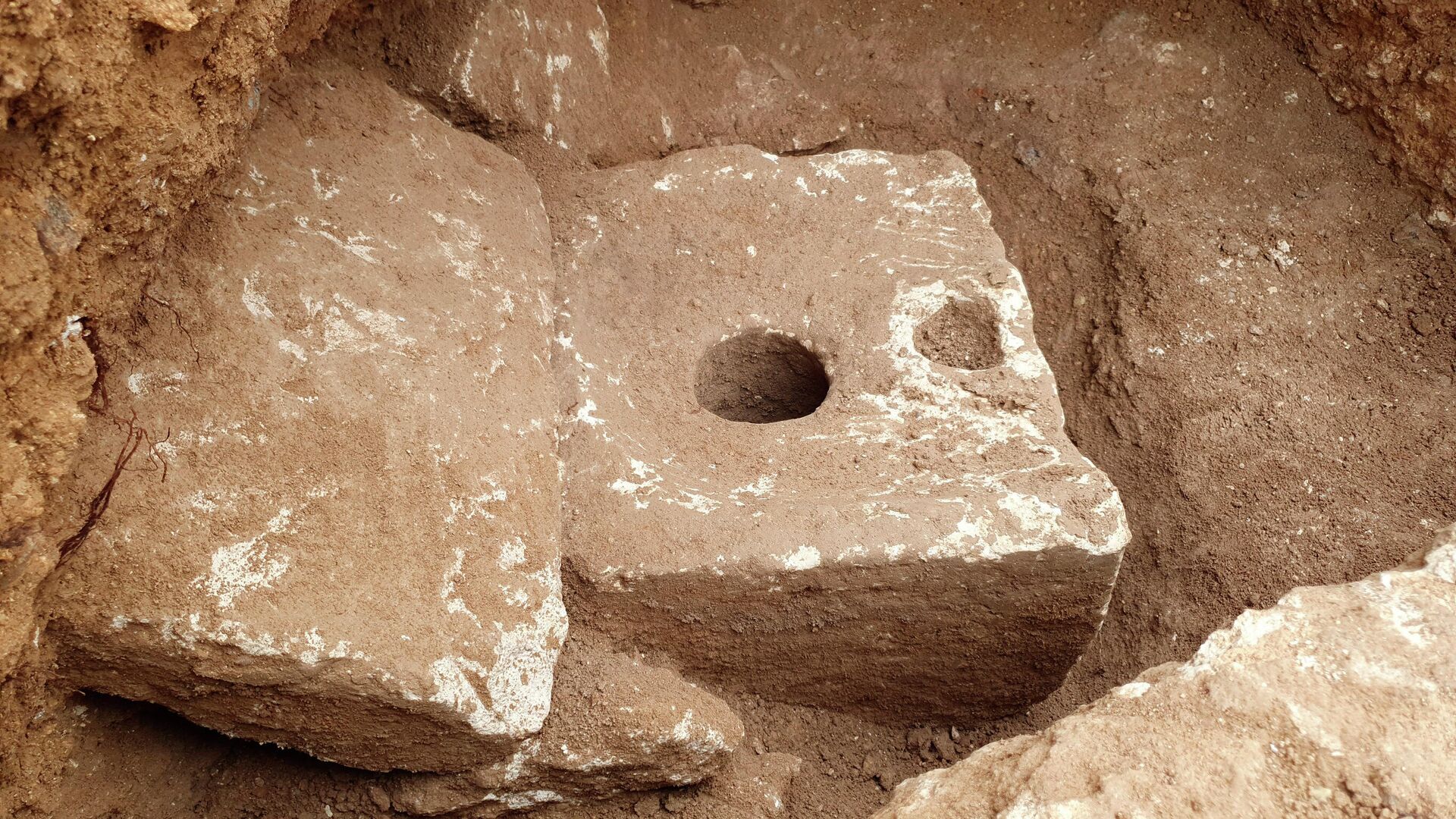https://sputnikglobe.com/20220104/millennia-old-toilet-depths-reveal-what-plagued-the-guts-of-jerusalems-nobles-in-biblical-times-1092019659.html
Millennia-Old Toilet Depths Reveal What Plagued the Guts of Jerusalem's Nobles In Biblical Times
Millennia-Old Toilet Depths Reveal What Plagued the Guts of Jerusalem's Nobles In Biblical Times
Sputnik International
Eggs of parasites such as tapeworm, roundworm, pinworm and whipworm were reportedly found underneath the outhouse on the site of what was once a palace or... 04.01.2022, Sputnik International
2022-01-04T18:59+0000
2022-01-04T18:59+0000
2022-10-19T20:17+0000
jerusalem
middle east
parasites
toilet
archaeology
https://cdn1.img.sputnikglobe.com/img/07e5/0a/05/1089693155_0:257:2731:1793_1920x0_80_0_0_14e40c3e4cd5901e51f3faf560a5a070.jpg
An archaeological discovery made in the depths of a cesspit beneath a 2,700-year-old toilet in Jerusalem offers a glimpse of an insidious affliction that plagued the nobility in the Kingdom of Judah, Haaretz reports.According to the newspaper, a new study conducted by Dafna Langgut of the Tel Aviv University and the Steinhardt Museum of Natural History suggests that the ancient kingdom’s elites, including possibly even monarchs from the Davidic dynasty, suffered from intestinal parasites.Although tapeworm can be contracted from consuming raw or undercooked beef and pork – “apparently ancient Israelites occasionally ate pork”, the newspaper notes – Langgut suggests that the spread of roundworm and whipworm, usually contracted when people ingest their eggs while coming into contact with feces, may have been related to the kingdom’s subjugation by the Assyrians in 701 BC.The Assyrian invasion resulted in Judah developing an economy focused on production of wine and oil – commodities not widely available in the heartland of the Assyrian Empire who demanded tribute from the kingdom.Such a move, she reportedly said, would result in “widespread parasite contamination of water and food sources, affecting all social strata in the area,” the newspaper notes, though at present this is just a hypothesis.
jerusalem
Sputnik International
feedback@sputniknews.com
+74956456601
MIA „Rosiya Segodnya“
2022
News
en_EN
Sputnik International
feedback@sputniknews.com
+74956456601
MIA „Rosiya Segodnya“
Sputnik International
feedback@sputniknews.com
+74956456601
MIA „Rosiya Segodnya“
jerusalem, middle east, parasites, toilet, archaeology
jerusalem, middle east, parasites, toilet, archaeology
Millennia-Old Toilet Depths Reveal What Plagued the Guts of Jerusalem's Nobles In Biblical Times
18:59 GMT 04.01.2022 (Updated: 20:17 GMT 19.10.2022) Eggs of parasites such as tapeworm, roundworm, pinworm and whipworm were reportedly found underneath the outhouse on the site of what was once a palace or royal estate built in the seventh century.
An archaeological discovery made in the depths of a cesspit beneath a 2,700-year-old toilet in Jerusalem offers a glimpse of an insidious affliction that plagued the nobility in the Kingdom of Judah, Haaretz reports.
According to the newspaper, a new study conducted by Dafna Langgut of the Tel Aviv University and the Steinhardt Museum of Natural History suggests that the ancient kingdom’s elites, including possibly even monarchs from the Davidic dynasty, suffered from intestinal parasites.
The scientist arrived at this conclusion after microscopic eggs of various parasites such as tapeworm, roundworm, pinworm and whipworm were found in a cesspit located under an outhouse at a site that may have been “a palace or a royal estate” built in early seventh century BC.
Although tapeworm can be contracted from consuming raw or undercooked beef and pork – “apparently ancient Israelites occasionally ate pork”, the newspaper notes – Langgut suggests that the spread of roundworm and whipworm, usually contracted when people ingest their eggs while coming into contact with feces, may have been related to the kingdom’s subjugation by the Assyrians in 701 BC.
The Assyrian invasion resulted in Judah developing an economy focused on production of wine and oil – commodities not widely available in the heartland of the Assyrian Empire who demanded tribute from the kingdom.
As the kingdom lost part of its territory to the invaders, Judah’s denizens started farming what the newspaper describes as “previously marginal lands”, such as rocky hills in the vicinity of Jerusalem, and Langgut postulates that these farmers might have resorted to using human waste produced by the city to fertilise the land.
Such a move, she reportedly said, would result in “widespread parasite contamination of water and food sources, affecting all social strata in the area,” the newspaper notes, though at present this is just a hypothesis.



